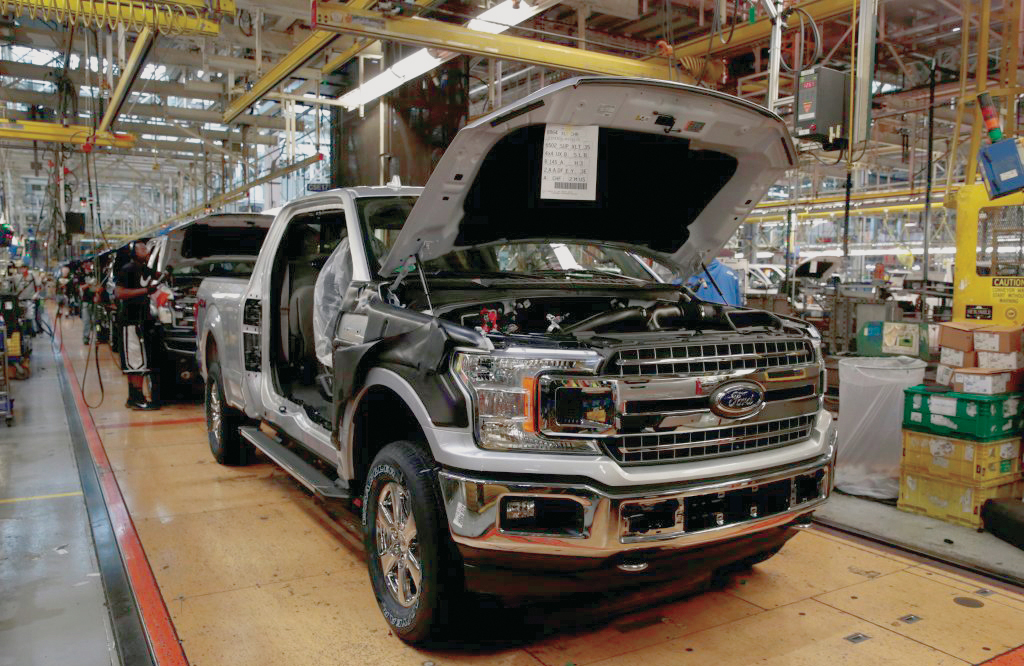

Bob Roth makes no bones about his feelings towards US manufacturing. The co-owner and chief executive of RoMan Manufacturing Inc, which makes transformers and glass-moulding equipment for automakers and other industries, asks callers on his voicemail: “What have you done today to support US manufacturing?”
His procurement team has been under long-standing orders to source all parts and materials as near as possible to his western Michigan factory, even with President Donald Trump’s tariffs on steel and aluminium.
But with those tariffs dragging into a new year and steel comprising a quarter of RoMan’s fixed costs, Roth says his company has now begun the lengthy process of switching from its US suppliers to an Israeli company for a key component for its products.
It is a strategic decision that RoMan and other auto suppliers have put off since the tariffs kicked in last spring. With tariffs firmly part of the landscape, some are now starting to shift their own supply chain to keep costs in check, according to more than a dozen interviews with US auto suppliers and industry consultants.
The choice is stark for most suppliers: absorb the extra cost, pass them on to customers or find ways to slash material costs.
The transformers Roth’s 150 workers at RoMan produce require a magnetized steel core that is now more expensive as tariffs have allowed US steel producers to raise prices. The Israeli supplier has access to cheaper steel and its cores qualify as finished products, so they are not subject to tariffs — making them a cheaper alternative.
“We don’t have the money to buy our way out problems like this,” Roth said of RoMan, which has annual revenue of around $35 million. “In the long run we can’t afford to absorb the extra cost of tariffs.”
Roth says he appreciates the sentiment behind Trump’s push to bring back American manufacturers jobs, but adds tariffs are “the wrong tool” because they hurt US firms.
Trade consulting firm Trade Partnership Worldwide LLC estimated last summer metals tariffs could cost 5,000 jobs in the US auto industry and 400,000 jobs overall — 16 jobs lost for every steel or aluminium worker hired. But so far there is little data available on how tariffs affect businesses such as RoMan because the process of switching suppliers is a long one and many manufacturers have muddled through so far.
Steven Wybo, managing director at consultancy Conway MacKenzie, said “every single auto supplier we are working with has concerns around tariffs,” and he worries they come at an already challenging time for the sector.
Suppliers are gearing up for a large number of vehicle launches over the next three years, an expensive business, while also bracing for an expected decline in US new vehicle sales. And some in the sector will bear the brunt of restructuring at Ford Motor Co General Motors Co (GM.N), which are dropping less-popular sedan models.
Adding tariffs to the mix can require a creative approach.
RoMan, for instance, splits half of a 10 per cent tariff with a Chinese customer on transformers subject to retaliatory measures against US manufacturers. RoMan will raise some prices 2 per cent this month to partially offset rising copper prices.
Warren, Michigan-based Eckhart Inc — which books about $100 million in annual sales by building robots and automated tools for GM, Volvo and Tesla Inc (TSLA.O) and other automakers — must absorb the tariffs or run the risk of losing out in competitive bids.
So Eckhart has focused on cutting costs, including rolling out a new US purchasing system for raw materials, CEO Andrew Storm said.
“We have to fight for every single dollar of revenue that comes in the door,” Storm said. “So we find ways to eat the extra cost.”
That is why RoMan is seeking alternative suppliers to cut costs — and it takes a long time to ensure a new supplier is financially sound and can consistently hit industry standards. Months into that process, RoMan is only now validating test parts produced by its potential new Israeli supplier. — Reuters
Oman Observer is now on the WhatsApp channel. Click here



